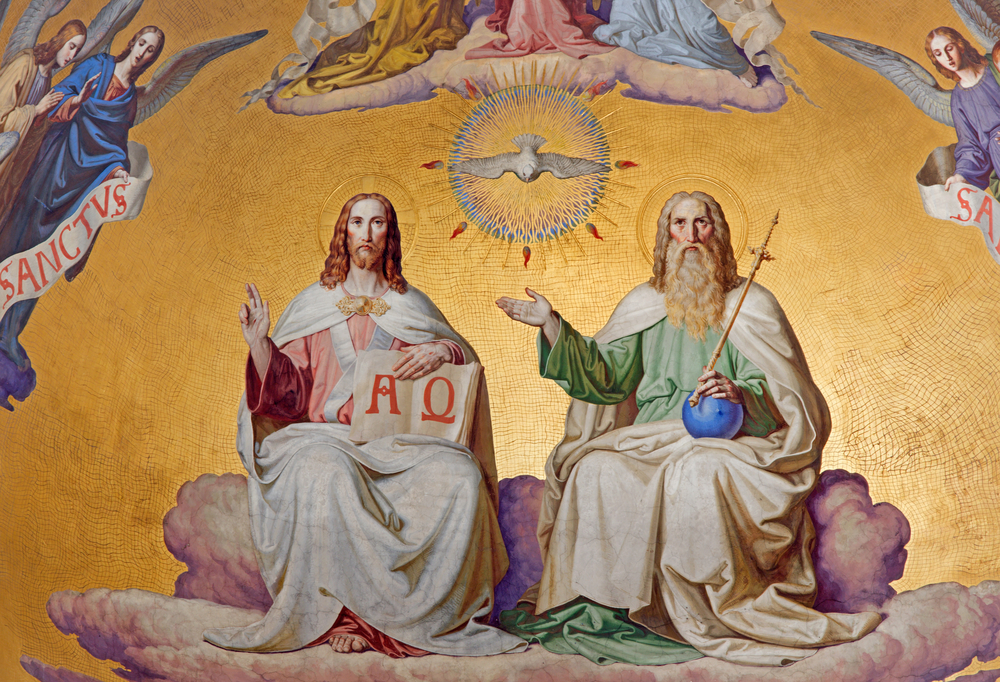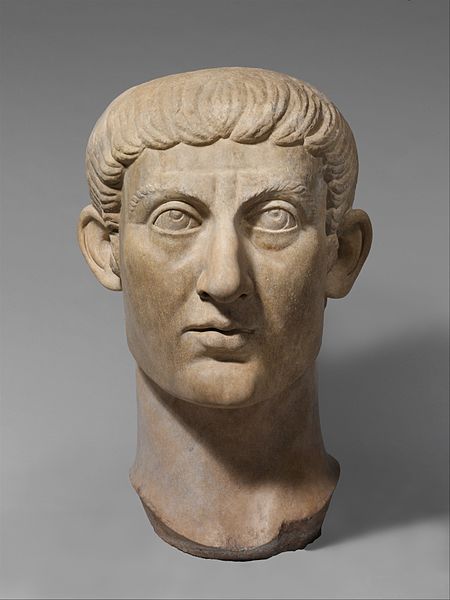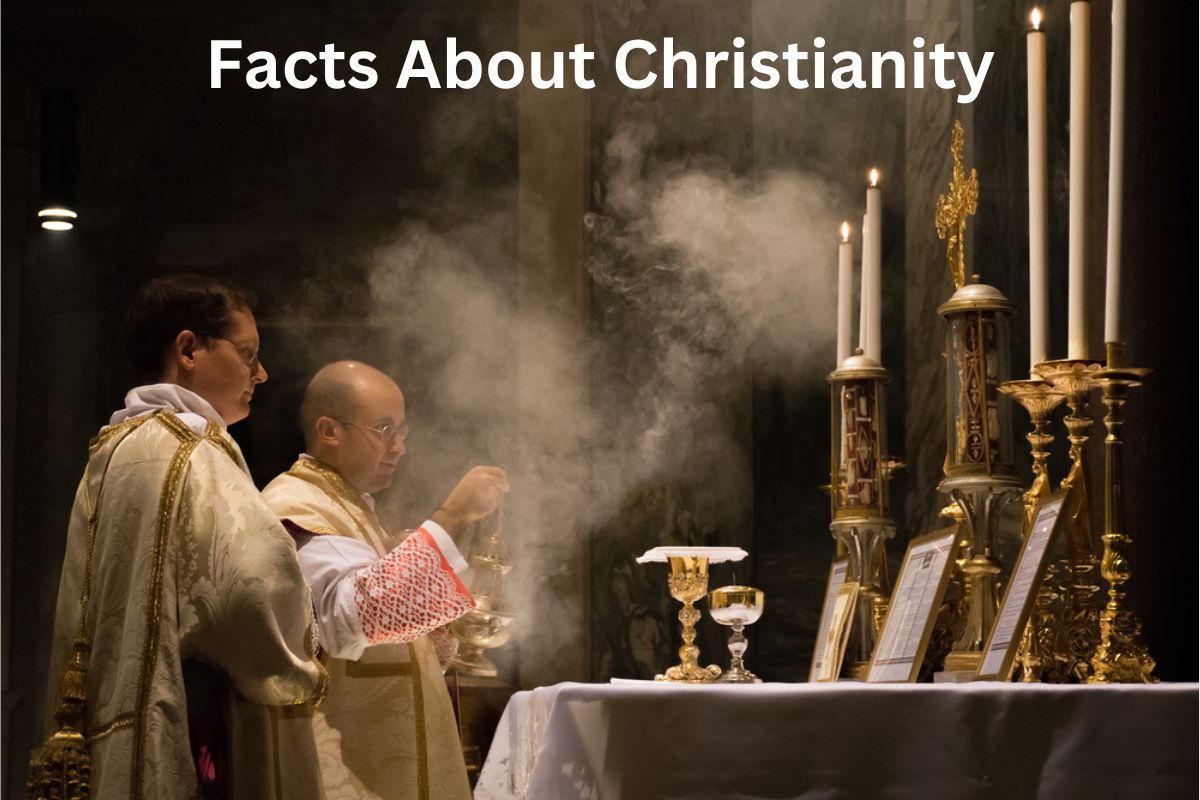Christianity is a major world religion centered around Jesus Christ, believed to be the Son of God and the Savior of humanity.
With over 2.3 billion followers, Christianity is the largest religion globally. It originated in the 1st century AD and is based on the Bible, which consists of the Old and New Testaments. Christians believe in the Holy Trinity and the transformative power of Jesus’ death and resurrection.
Christianity has influenced art, literature, music, education, and legal systems. It encompasses various denominations and has spread through missionary efforts worldwide. Christianity offers hope, redemption, and a call to follow Jesus’ teachings.
Christianity Facts
1. Christianity is a monotheistic religion centered on the life and teachings of Jesus Christ
Christianity is a monotheistic religion centered on the life and teachings of Jesus Christ, whom Christians believe to be the Son of God and the Savior of humanity.
Also Read: Facts About Religion
Christians believe that Jesus was born of a virgin named Mary, lived a sinless life, performed miracles, was crucified on a cross, and rose from the dead three days later.
His life and teachings form the foundation of Christian faith and serve as a model for how believers should live.
2. Christianity is the largest religion in the world, with over 2.3 billion followers
Christianity is the largest religion in the world, with over 2.3 billion followers, making up about 31% of the global population. It is a global faith, practiced in various forms and denominations across continents and cultures.
The majority of Christians are found in the Americas, Europe, and Africa, although the religion has followers in nearly every corner of the globe.

3. The holy book of Christianity is the Bible, which consists of two main sections: the Old Testament and the New Testament
The holy book of Christianity is the Bible, which consists of two main sections: the Old Testament and the New Testament. The Old Testament contains religious texts that predate the birth of Jesus and includes books such as Genesis, Exodus, Psalms, and Isaiah.
Also Read: Jesus Christ Facts
The New Testament focuses on the life, death, and resurrection of Jesus, as well as the early Christian community. It includes the four Gospels (Matthew, Mark, Luke, and John), the Acts of the Apostles, the Epistles (letters written by early Christian leaders), and the Book of Revelation.
4. Christians believe in the concept of the Holy Trinity
Christians believe in the concept of the Holy Trinity, which teaches that God is one being in three persons: the Father, the Son (Jesus Christ), and the Holy Spirit. This belief acknowledges the complex nature of God as three distinct entities that are inseparable and co-eternal.
The Trinity is seen as a central mystery of the Christian faith, illustrating the interconnectedness and unity of God’s divine nature.

5. The central message of Christianity is the Gospel, which means “good news”
The central message of Christianity is the Gospel, which means “good news.” It proclaims that Jesus’ death and resurrection provide salvation and forgiveness of sins to those who have faith in Him. Christians believe that all humans are born with a sinful nature and are separated from God.
Also Read: Roman Catholic Church Facts
Through Jesus’ sacrificial death on the cross, believers can be reconciled with God and have eternal life. This message of redemption and grace is at the core of Christian theology and serves as a source of hope and transformation for individuals and communities.
6. Christianity originated in the 1st century AD in the region known as the Levant
Christianity originated in the 1st century AD in the region known as the Levant, which includes modern-day Israel, Palestine, and Jordan. It emerged within the context of Judaism, as Jesus was born and raised in a Jewish family.
His teachings and ministry attracted followers, and Christianity began to spread throughout the Roman Empire and beyond, eventually becoming a distinct religious movement.
7. The Roman Emperor Constantine’s converted to Christianity in the 4th century AD

The Roman Emperor Constantine‘s conversion to Christianity in the 4th century AD played a significant role in the religion’s spread and eventual establishment as the state religion of the Roman Empire.
This event, known as the Edict of Milan in 313 AD, ended the persecution of Christians and allowed the faith to flourish. Constantine’s influence and support led to the Council of Nicaea in 325 AD, where Christian leaders gathered to establish theological doctrines and define orthodox beliefs.
8. Christianity encompasses various denominations and traditions
Christianity encompasses various denominations and traditions, including Roman Catholicism, Eastern Orthodoxy, and Protestantism, each with its own distinct beliefs and practices.
The division of Christianity into different branches occurred due to theological, political, and cultural differences over the centuries.
Roman Catholicism, centered in the Vatican, considers the Pope as the highest authority. Eastern Orthodoxy, with its strong presence in Eastern Europe and the Middle East, recognizes the authority of multiple patriarchs.
Protestantism emerged during the Reformation in the 16th century and includes diverse groups such as Lutherans, Baptists, Methodists, and Pentecostals.
9. The major Christian holidays include Christmas, celebrating the birth of Jesus, and Easter, commemorating His resurrection
The major Christian holidays include Christmas, celebrating the birth of Jesus, and Easter, commemorating His resurrection. Christmas is observed on December 25th (in most Christian traditions) and is a time of joy and celebration, marked by the exchange of gifts and the display of nativity scenes.
Easter, which falls on different dates each year, is a time of reflection and rejoicing, symbolizing Jesus’ victory over death. Good Friday, observed before Easter, commemorates the crucifixion of Jesus, while Pentecost celebrates the descent of the Holy Spirit upon the early disciples of Jesus. Advent, a season of preparation and anticipation, begins on the fourth Sunday before Christmas.
10. Christian worship typically takes place in churches
Christian worship typically takes place in churches, where believers gather for communal prayers, hymn singing, and the celebration of the Eucharist (also known as Communion or the Lord’s Supper).
Churches serve as sacred spaces where believers come together to worship, seek spiritual guidance, and nurture their faith.
Worship practices vary among different Christian denominations, ranging from elaborate liturgical ceremonies with sacraments and rituals in Catholic and Orthodox traditions to more informal and contemporary styles in Protestant churches.
The Eucharist, a central sacrament, involves the sharing of bread and wine, symbolizing the body and blood of Jesus, in remembrance of His sacrificial death.
11. Christians believe in the existence of heaven (a place of eternal life with God) and hell (a place of eternal separation from God)
Christians believe in the existence of heaven (a place of eternal life with God) and hell (a place of eternal separation from God). They also believe in the concept of the afterlife, where individuals will be judged based on their actions and faith.
Christians strive to live according to their beliefs, seeking to follow the teachings of Jesus and lead a righteous life in preparation for their eternal destiny.
12. The Ten Commandments, were given by God to Moses in the Old Testament
The Ten Commandments, given by God to Moses in the Old Testament, serve as a moral and ethical guide for Christians.
These commandments emphasize principles such as love for God and one’s neighbor, honesty, respect for parents, and refraining from actions such as theft, murder, and adultery.
The full list of the ten commandments are as follows:
- I am the LORD your God: you shall not have strange Gods before me.
- You shall not take the name of the LORD your God in vain.
- Remember to keep holy the LORD’S Day.
- Honor your father and your mother.
- You shall not kill.
- You shall not commit adultery.
- You shall not steal.
- You shall not bear false witness against your neighbor.
- You shall not covet your neighbor’s wife.
- You shall not covet your neighbor’s goods.
Christians view the commandments as a framework for moral living and ethical conduct, guiding their relationships with both God and fellow human beings.
13. Throughout history, Christianity has played a significant role in shaping Western civilization
Throughout history, Christianity has played a significant role in shaping Western civilization. The Christian faith has influenced art, literature, music, education, and legal systems.
It has inspired iconic works of art such as Michelangelo’s Sistine Chapel ceiling and Bach’s compositions. Christian values have influenced the development of education, with the establishment of numerous universities and schools.
Legal systems in many countries have been influenced by Christian principles, leading to the development of laws based on moral and ethical considerations.
14. Christian missionaries have spread the faith to different parts of the world
Christian missionaries have spread the faith to different parts of the world, leading to its global reach and diverse cultural expressions.
From the early apostles who traveled throughout the Roman Empire to modern-day missionaries, Christians have sought to share their beliefs and teachings with people from various cultures and backgrounds.
This missionary activity has led to the establishment of Christian communities and churches in different countries and has contributed to the diversity of Christian practices and traditions worldwide.
15. Christianity encourages believers to actively practice their faith through acts of charity, compassion, and love
Christianity encourages believers to actively practice their faith through acts of charity, compassion, and love towards others, following the example set by Jesus during His ministry. Christians are called to help the poor, feed the hungry, clothe the needy, care for the sick, and support those in need.
This emphasis on loving and serving others is often expressed through charitable organizations, social initiatives, and community outreach programs run by churches and Christian organizations. These efforts aim to bring about positive change, alleviate suffering, and demonstrate the transformative power of Christian faith in action.
